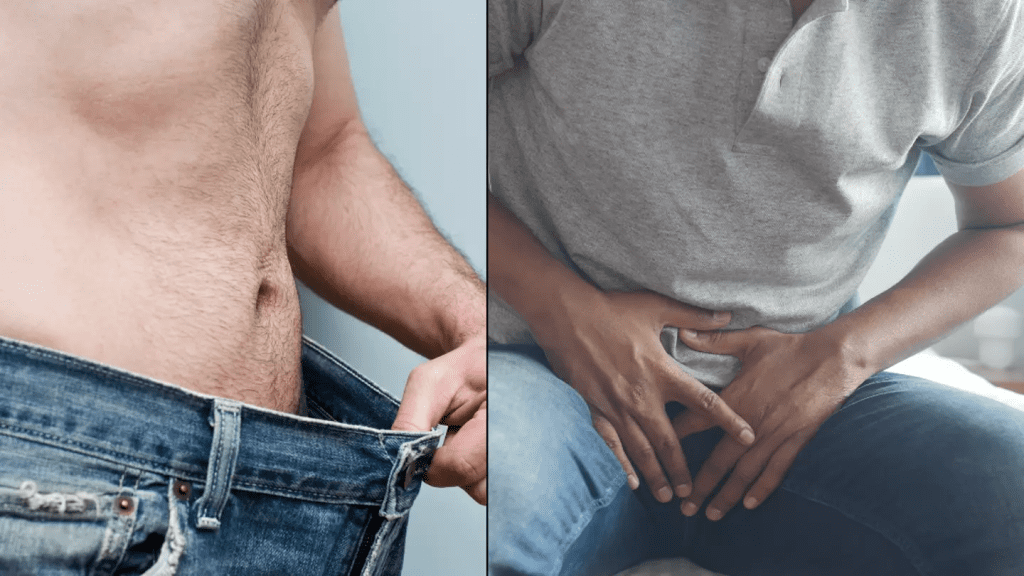It’s that time of year again—November 1st, marking the start of No Nut November (NNN). This viral internet challenge encourages men worldwide to abstain from all forms of ejaculation, whether through masturbation or s**, for the entire month. With claims that participating in this abstinence can boost mental resilience, confidence, and even physical health, it’s no wonder this internet challenge has gained traction. But are the benefits as real as they seem? According to several medical experts, you may want to think twice before taking part.

The Origins of No Nut November: Where Did This Challenge Come From?
No Nut November’s exact origins are murky. However, it’s thought to have emerged from online forums, eventually gaining attention and creating a community of followers across the globe. The movement has a simple premise—go 30 days without any form of ejaculation to build self-discipline, increase testosterone, and gain a mysterious set of “health benefits.”
While some men claim they feel more energized and focused after abstaining, experts have questioned these assumptions. Urologists, psychologists, and health professionals have raised valid concerns about the supposed benefits of No Nut November, suggesting that abstinence might do more harm than good.
Understanding the Physiological Benefits of Ejaculation: Insights from Medical Experts
Health experts, like Dr. Alexis Missick, an erectile dysfunction specialist from UK Meds, have spoken openly about the health benefits of regular ejaculation. Far from being a mere act of indulgence, masturbation can positively impact testosterone levels, mental health, and even stamina. Here’s what Dr. Missick and other experts have shared on the topic.
Testosterone and Libido: The Positive Feedback Loop
“Masturbation can have a positive feedback effect on testosterone and libido,” explains Dr. Missick. Testosterone is a crucial hormone that affects libido, energy, and muscle mass in men. By regularly ejaculating, men may sustain or even boost their testosterone levels, which can enhance s****l desire and performance.
This doesn’t mean excessive masturbation is ideal, but consistent, healthy habits around s****l activity can help maintain hormonal balance. The “No Nut” abstinence can break this feedback loop, potentially reducing libido and causing hormonal imbalances over time.
Mental Health and Confidence: Reducing Anxiety with Regular Ejaculation
Performance anxiety and self-esteem issues are common problems that can exacerbate erectile dysfunction and premature ejaculation. According to Dr. Missick, masturbation can help men overcome these psychological hurdles, particularly by desensitizing performance anxiety triggers. Engaging in regular self-stimulation can normalize s****l experiences and build a sense of confidence and ease around intimacy.
By removing this from one’s routine, No Nut November may increase stress levels, which can be counterproductive to mental health goals. Dr. Rena Malik, a urologist and s****l health expert, warns that complete abstinence can sometimes have unintended psychological effects. Instead of promoting mental strength, it could cause increased anxiety, stress, and feelings of deprivation.
Physical Side Effects of Abstinence: The “Blue Balls” Phenomenon and More
Many men participating in No Nut November report experiencing discomfort known as “blue balls.” This condition, medically known as epididymal hypertension, occurs when blood flow increases to the genitals without release. While not dangerous, blue balls can be uncomfortable and distract from daily tasks.
Other potential side effects include pelvic floor pain, heightened sensitivity, and general discomfort. According to Dr. Malik, some men may even find that extended periods of abstinence lead to unintentional nocturnal emissions (also known as “wet dreams”) as the body naturally releases sperm.
As Dr. Karan Rajan highlights, sperm production in men is continuous. Even if a man refrains from ejaculation, the body will eventually need to release the buildup. Prolonged abstinence can lead to spontaneous nocturnal emissions or even increased levels of irritability and restlessness.
Debunking the Myths of No Nut November: The Real Health Effects of Ejaculation
No Nut November proponents argue that abstaining from ejaculation can increase “mental clarity” and testosterone levels, but research has not supported these claims in any meaningful way. In fact, most studies reveal that regular ejaculation has various benefits, from physical relaxation to improved cardiovascular health.
Myth: Abstinence Raises Testosterone Levels Dramatically
One common belief is that abstaining from ejaculation leads to a surge in testosterone. However, studies suggest that while testosterone levels may experience a brief spike after a few days of abstinence, they typically return to baseline after that period. In other words, a month-long period of abstinence is unlikely to yield any substantial or long-lasting increase in testosterone.
Myth: No Nut November Improves Focus and Energy
There’s a misconception that avoiding ejaculation can channel one’s energy into other areas, such as work or personal goals. While focusing on self-discipline can be beneficial, the absence of s****l release may increase stress and frustration for some. Masturbation releases endorphins and dopamine, chemicals associated with pleasure and relaxation. Regular s****l activity, including masturbation, can improve mood, reduce stress, and promote better sleep—benefits participants miss out on during No Nut November.
Why Masturbation and S** are Important for Health: Beyond No Nut November
Many doctors and health experts stress that masturbation and s****l activity play essential roles in overall well-being. These activities have proven physical and psychological benefits that can improve one’s quality of life:
- Improved Sleep: Ejaculation releases hormones like prolactin and oxytocin, which promote relaxation and better sleep.
- Stress Relief: Regular s****l release can reduce cortisol levels, easing stress and creating a sense of well-being.
- Pelvic Floor Health: Engaging in s****l activities can strengthen the pelvic floor, improving urinary control and reducing the risk of incontinence later in life.
- Enhanced Mood and Confidence: As a source of natural endorphins, masturbation can contribute to improved mood, reduced anxiety, and increased confidence.
Alternatives to No Nut November: Embracing Balanced Habits
Instead of adopting an all-or-nothing approach like No Nut November, experts suggest establishing a balanced, healthy relationship with s****lity. Here are some alternatives that promote both physical and mental well-being:
- Mindful Masturbation: Practicing moderation and setting healthy boundaries can help individuals avoid the extremes of excessive indulgence or prolonged abstinence.
- Exercise and Wellness Routines: Regular exercise, yoga, and meditation can provide the mental clarity and focus that No Nut November claims to offer, without the associated risks of complete abstinence.
- Journaling and Goal-Setting: If self-discipline and productivity are the main objectives, setting specific goals and tracking progress can yield far better results than abstaining from s****l release.
Conclusion: Is No Nut November Really Worth the Sacrifice?
In the end, No Nut November might be an interesting test of willpower, but it’s far from a scientifically supported health practice. Medical professionals, from urologists to mental health experts, agree that regular ejaculation—whether through s** or masturbation—offers a host of physical and psychological benefits. By participating in abstinence challenges like No Nut November, men might inadvertently miss out on improved mood, stress relief, and even the physical perks that come with regular ejaculation.
Instead of going cold turkey, consider a more balanced approach that incorporates mindfulness, self-care, and moderation. Embracing a healthy relationship with one’s s****l habits, rather than following extreme internet trends, is a much more sustainable way to improve both mental and physical well-being.


